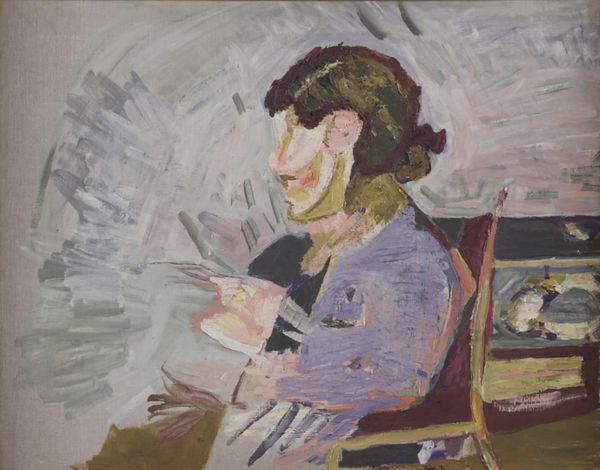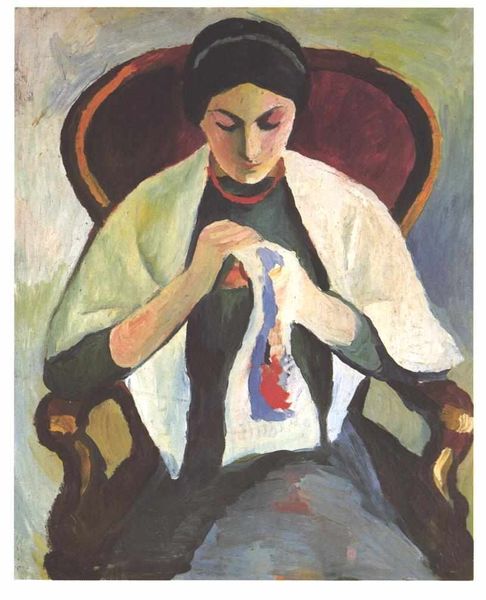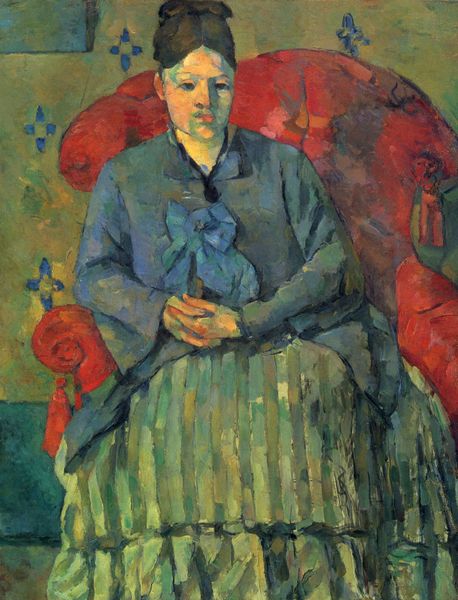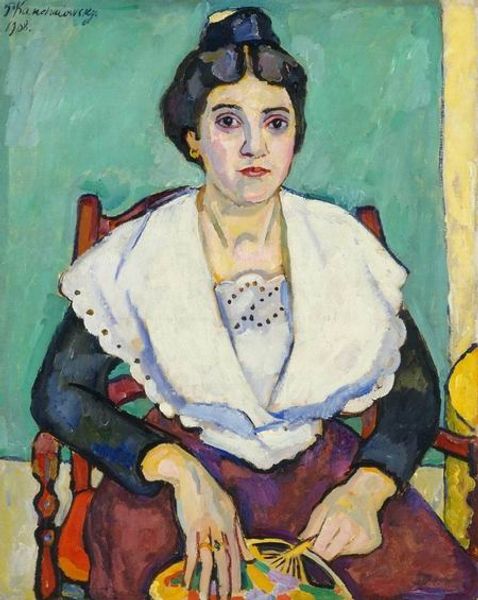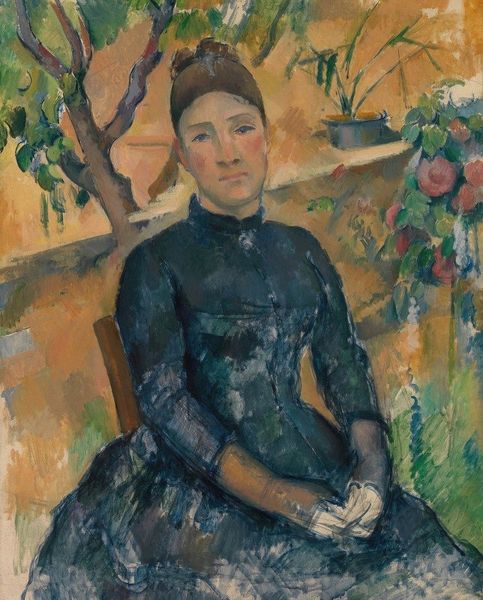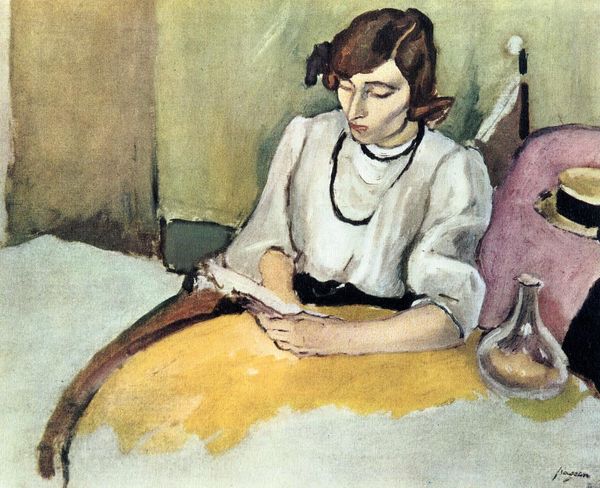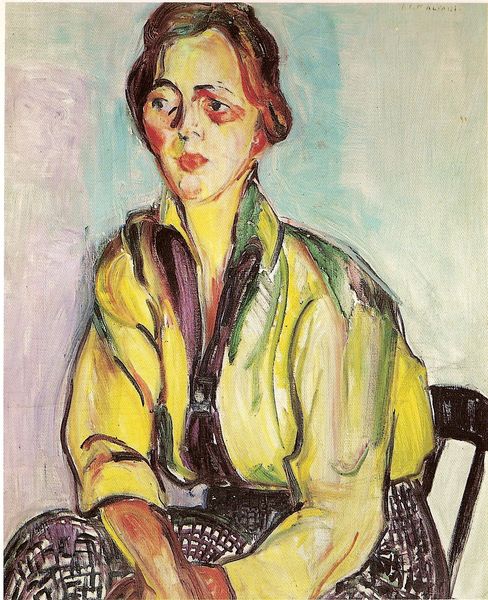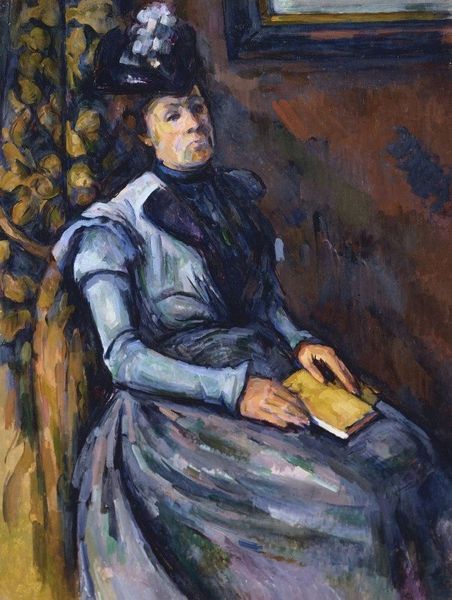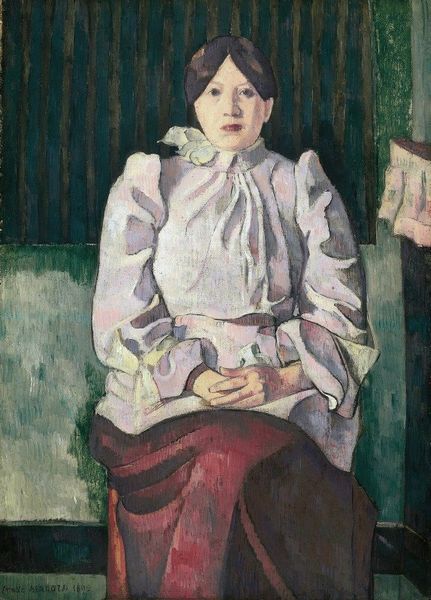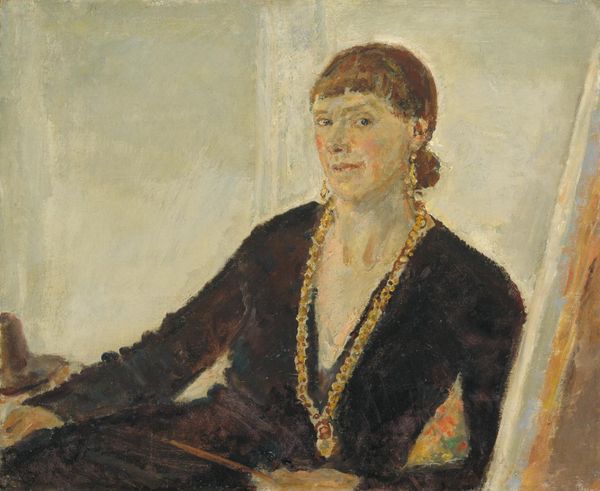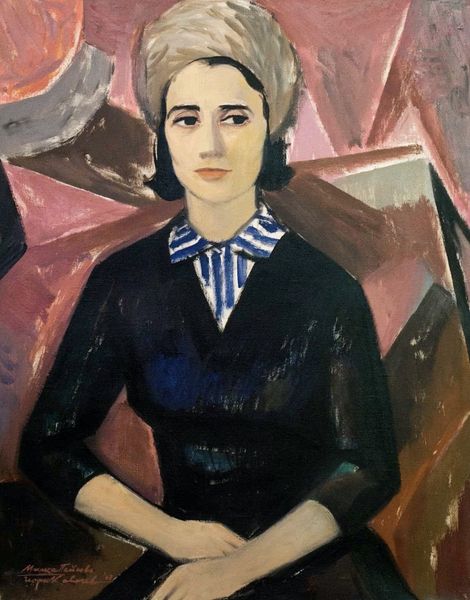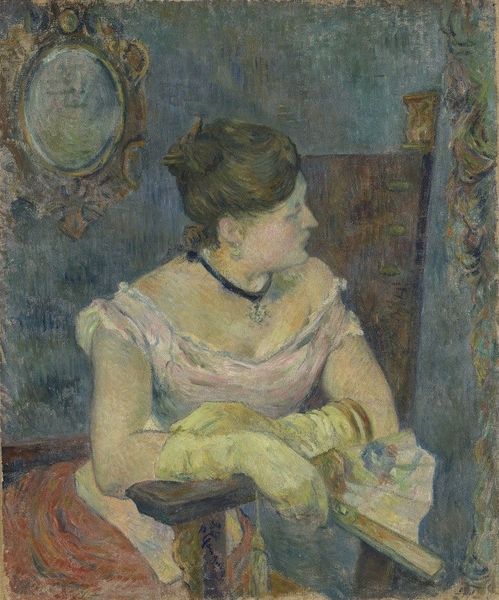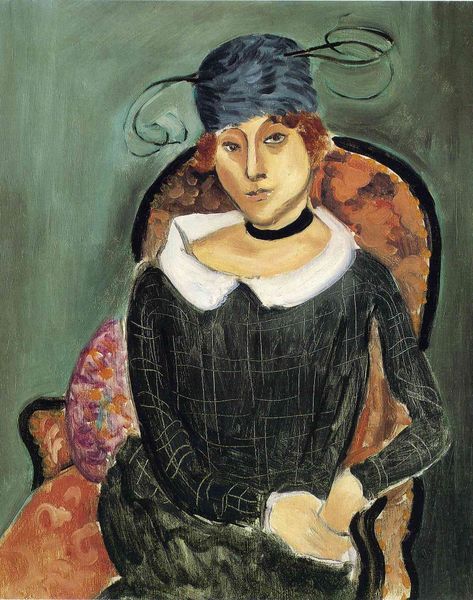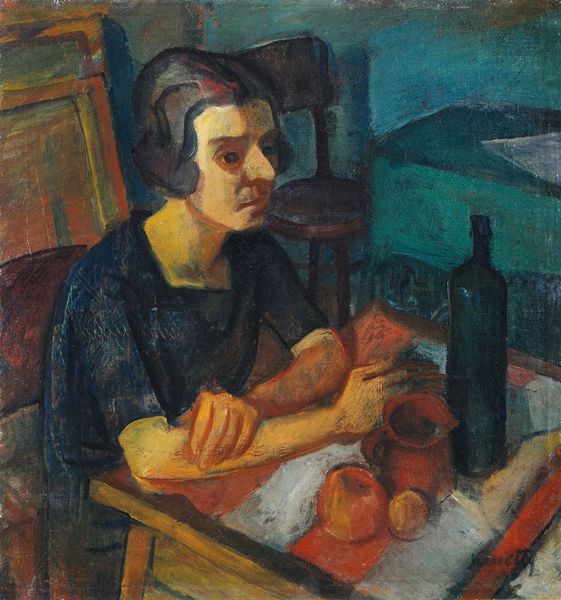
painting, oil-paint
#
portrait
#
figurative
#
painting
#
oil-paint
#
oil painting
#
symbolism
#
post-impressionism
#
portrait art
#
fine art portrait
Copyright: Public Domain: Artvee
Paul Gauguin painted "Woman in Front of a Still Life by Cézanne" in 1890s France. Here, Gauguin represents a woman, perhaps a member of his social circle, within a domestic interior space. The painting behind her is a nod to another important member of the Post-Impressionist movement. Notice how the inclusion of Cézanne’s painting subtly positions Gauguin within a network of artistic influence and innovation. The late 19th century was a period of significant social change and artistic experimentation. Gauguin, like many artists of his time, was questioning traditional academic styles and exploring new ways of representing the world. The rise of art markets and galleries also influenced artists' careers, creating new opportunities and challenges. To better understand this painting, we can look at exhibition records and private correspondence from the period to shed light on the relationships among artists and their patrons. Such sources help us see how artworks like this were not just aesthetic objects but also products of a particular social and economic moment.
Comments
No comments
Be the first to comment and join the conversation on the ultimate creative platform.
